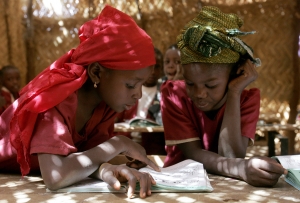The lack of data makes it difficult to monitor the progress on gender equality and rural women’s empowerment in agriculture, food security and nutrition.
The Food and Agricultural Organization of the United Nations (FAO) is supporting countries with the analysis necessary to make second-generation National Agriculture Investment Plans (NAIPs) and Regional Agriculture Investment Plans (RAIPs) gender responsive. FAO Representation in Ethiopia held a Stakeholders’ Validation Workshop on the use of sex-disaggregated data in agriculture to make second-generation National Agriculture Investment Plans on 19 August 2022 in Addis Ababa, Ethiopia.
In opening remarks, Maya HageAli, Nutrition Team leader for FAO in Ethiopia, highlighted the importance of mapping gender indicators, identifying gender issues and gaps, and providing capacity-building to stakeholders in the NAIP formulation towards reducing gender gaps in agriculture and rural development. “To this effect, the FAO Representation in Ethiopia has been collaborating with key sectors and stakeholders in collecting, analyzing and disseminating sex-disaggregated data at sectoral and national levels” She added.
FAO has supported the Government of Ethiopia since 2021 in carrying out key gender indicators mapping to identify gender issues and gaps and provide related capacity-building. Different stakeholders, consisting of government sectors/agencies, UN agencies, bilateral/ multilateral organizations and local Civil Society Organizations (CSOs), were identified and consulted during the mapping exercise.
The mapping exercise identified several gender indicators in the agriculture, social and education sectors in the domain of gender roles in agricultural production and decision making, access to agricultural inputs and services, asset ownership, natural resources, employment, education, health, social protection and agency. Consequently, the generated report presented results of the mapping exercise for Ethiopia in which key gender indicators and sex-disaggregated data were identified and collected from primarily published sources.
Drawing participants from a wide range of stakeholders from Government sectors/agencies, UN agencies and bilateral/multilateral organizations, and local CSOs, the workshop presented the findings of the mapping exercise to stakeholders and obtained feedback necessary for the follow-up steps.
Gender equality is among the main thematic areas for achieving the Sustainable Development Goals (SDG) and the African Union (AU) Agenda 2063. The 2014 Malabo Declaration upheld Comprehensive African Agricultural Development Program (CAADP) commitments in multiple thematic areas, including gender. In line with this, the Food and Agricultural Organization of the United Nations is supporting countries with the analysis necessary to make second-generation National Agriculture Investment Plans (NAIPs) and Regional Agriculture Investment Plans (RAIPs) gender-responsive. Ethiopia is among the countries where this analysis is being done.
Article from FAO Regional Office for Africa
Photo: Children attending primary school, Niger. Credit: © FAO/Giulio Napolitano

